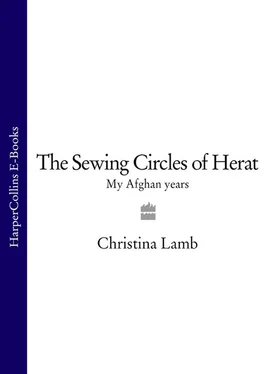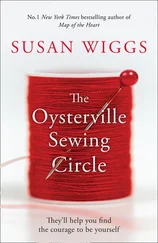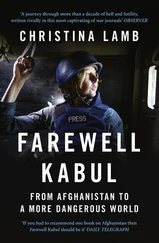1 ...8 9 10 12 13 14 ...18 There was another reason for wanting to go to Kandahar. In Peshawar I had met a direct descendant of Ahmad Shah Abdali, a Kandahari called Hamid Karzai. Educated at a private school in the Indian hill-station of Simla, followed by a master’s in political science at Delhi University, he was about thirty and spoke the old-fashioned English of newspapers in the subcontinent, addressing women as ‘ma’am’ and using expressions such as ‘turning turtle’ and ‘miscreants’.
Hamid was unlike anyone I had ever met. He wore a leather jacket and jeans, yet walked with the bearing of a king. In a city where men did not consider themselves dressed without rocket-propelled grenades or Kalashnikovs across their shoulders, he was polite and gentle and liked reading English classics such as George Eliot’s The Mill on the Floss. He had a beaked nose and a bald round head that cocked from side to side like a bird as he fixed deep brown eyes upon his listeners. With me he would talk about English music and literature, the feeling that he had lost his youth, and his hatred for Pakistan and his life there. But the greatest passion in his voice came when he spoke of Kandahar with its orchards and running streams, grapes which he said came in forty varieties, not just green and black as I had known in England, and deep-red pomegranates so sweet and luscious that Persian princesses dined on them and lovers wrote poetry about them. He told me too of great tribes and heroic clashes and had a sense of history and being part of it unlike anyone I had ever come across. His eyes would bulge with anger as he talked of centuries-old feuds between his tribe and another.
His tribe were the Popolzai, a Durrani clan that could trace their origins back to the fifteenth century and had given the king the land to build Kandahar as his capital. Once I asked him to tell me their story. ‘It’s too long,’ he laughed, telling me only the part about an Abdali khan who was so old and weak he could no longer mount his horse and beseeched his four sons to help him. The first three all laughed and refused. But the youngest, whose name was Popol, put him on his back and carried him, so when the old man was dying, it was Popol he named as his heir.
Though Hamid was not the eldest of the seven sons of Abdul Ahad Karzai, leader of the Popolzai, he was the only one not to have gone into exile and thus regarded as the probable successor. His brothers all lived in America where they ran a chain of Afghan restaurants called Helmand in Chicago, San Francisco, Boston and Maryland.
He too had been planning to move abroad but after the Soviets took over and imprisoned his father, he abandoned his studies in India to travel to Pakistan and visited a refugee camp near Quetta where he found himself surrounded by hundreds of Popolzai. ‘They thought I could help them just because of who I was,’ he said. ‘But I was who I was only because of them. They were such brave people, it made me feel humble and guilty about my privileged life and I became determined to be the man they thought I was.’
His house in Peshawar bustled with tribal elders, large men with complicated turbans, sitting cross-legged on floor cushions in various rooms, drinking green tea from a pot constantly replenished by a small boy, and unwrapping small silver-foil Hershey Kisses sent by Hamid’s brothers. Some of his visitors looked wild and unwashed and seemed from another century entirely to Hamid, but he listened to them with great respect and gave them food and shelter, while he himself lived very simply, using any money he acquired to help his tribesmen.
‘I’ve always had this drive. It’s something in me, this great love for the tribe,’ he said. Yet growing up he had hated what he called the ‘tribal thing’ and had been eager to escape Kandahar and go abroad. Had the Russians not invaded, his dream had been to become a diplomat, perhaps even Foreign Minister one day, but the war had changed everything. His skill was with words rather than guns so he became spokesman for the National Liberation Front of Professor Sibghatullah Mojadiddi, a royalist from a prominent Sufi family and one of the most moderate – and thus worst funded – of the seven leaders.
This was the job he was doing when I first met him in 1988 but by then he was disillusioned with the mujaheddin leadership. It should have been a time of jubilation – the defeated Russians had agreed to leave and their troops would soon be heading back across the Oxus River in a humiliation that would help trigger the collapse of the Soviet Union. But the cost had been enormous – 1.5 million Afghans had lost their lives and more than 4 million become refugees – and the mujaheddin had failed to agree on any credible government to replace the Soviet-backed regime. As far as Hamid was concerned the seven leaders were not interested in the future of their country and had all become corrupt and power-grabbing, people who would have been nothing in the traditional tribal set-up but now lived in palatial houses in Peshawar with fleets of Pajero jeeps and dollar accounts overseas.
Mostly he blamed ISI, in particular General Hamid Gul, the agency’s manipulative director who initiated the policy of bringing Arabs to fight in Afghanistan and made no secret of his desire to see his protégé Hekmatyar installed in Kabul running a ‘truly Islamic state’. Because US support for the mujaheddin to fight the Russians was a covert CIA operation, ISI had been in charge of distributing all the arms and money as well as providing the Americans with intelligence. The agency was in effect controlling Afghan policy. It was ISI that had created the seven mutually hostile parties back in 1980, following the well-tried British divide-and-rule policy, and it was made clear to refugees that a membership card for Hekmatyar’s Hezb-i-Islami was a fast track for obtaining flour and cooking oil while joining the royalists meant a long wait. ISI was mistrustful of anyone from Kandahar, remembering how the Durranis had once controlled a large part of what was now Pakistan, and refused to recognise Pashtun nationalist organisations. Instead, they diverted the lion’s share of aid and weapons to fundamentalists such as Hekmatyar who received half of the US$6bn provided by the US and Saudi Arabia, telling the Americans quite erroneously that his men were more effective on the battleground.
‘The Russians may have destroyed our territory but the Pakistanis have destroyed our liberal culture,’ Hamid complained. ‘I can never get married in this country because I don’t want to subject my wife to this kind of life.’ Saddened that the jihad was ending in disarray and he had sacrificed his youth and studies for ‘nothing’, he often talked about giving it all up and moving to Europe. Instead, increasingly he began to believe that the future of Afghanistan lay with some of the leading commanders and the tribes, the same view I was hearing from Abdul Haq, the young Kabul commander who lived a couple of streets away from me in Peshawar’s University Town and where I would often drop in to persuade him to send me with his fighters to Kabul.
‘You’re just a girl,’ Abdul Haq would always say, laughing at my irritation, and then moving on to politics. ‘We commanders did our job fighting and expected the leaders to do theirs. Now it seems we might have to do that too,’ he grumbled, painfully shifting the artificial foot which he had to wear since stepping on a mine in 1987. ‘We have been loyal and are still loyal but if the leaders cannot come together we cannot just sit by and let the country be destroyed.’
One day Hamid told me of an independent group known as the Mullahs Front fighting around Kandahar. He was going to visit and offered to take me with him. ‘You must go to Kandahar. That’s the real Afghanistan,’ he said in his emphatic way, a tic vibrating in his cheek.
Читать дальше












